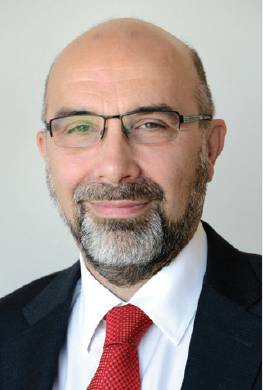Practice management
Niche marketing for legal businesses
David Cliff explains how firms can better market in the legal world.
 About the author: Gedanken is a leading-edge executive and business-coaching organisation, founded by Dr David Cliff, an expert coach and mentor with over 35 years of management and personal development experience. He was recently named Lead Ambassador for Mentoring and Lead Ambassador for Mental Health by the Institute of Directors North East, and was awarded Mentor of the Year at the 2017 Entrepreneur
About the author: Gedanken is a leading-edge executive and business-coaching organisation, founded by Dr David Cliff, an expert coach and mentor with over 35 years of management and personal development experience. He was recently named Lead Ambassador for Mentoring and Lead Ambassador for Mental Health by the Institute of Directors North East, and was awarded Mentor of the Year at the 2017 Entrepreneur
It is a relatively short period of time since lawyers were allowed to market their business. In the past, people knew what a legal practitioner did and that was a fairly consistent bill of fare wherever you went. It was criminal, matrimonial, civil, wills and probate, and land.
The modern world sees many more complex legal needs. So, what legal practitioners call specialisms (and, indeed. sub-specialisms) which reflect the complexity of practice knowledge and experience to meet the challenges of a modern legal environment are, in reality, niche markets.
Marketing legal services
Niche marketing is a challenging art. It is about identifying demographics to speak to the age/gender/socio-economic status/expectations and hopes of the target population involved. It is about linking the service offering to the finance involved in that process; and it is about communicating the nature and value of the offering, and its features and benefits. Most of all, however, it is about enabling customers to take forward their lives and live them in a meaningful empowered way. Therefore, a lot of marketing involves the notion of ‘move towards’. This is a neuro-linguistic programming term in contrast to its polar opposite, ‘move away from’. Services on a ‘move away’ basis are those of necessity, where there is pain and discomfort and its removal, whether that is physical, medical, legal or social, is the paramount aim.
Many people view legal services as something that is a response to an element of pain or injustice in their life as opposed to something that can necessarily enable. On the personal front, taking action to consolidate one's estate, effective planning for the future and even defending one's interests transgenerationally are all potential ‘move towards’ opportunities that exist.
Despite the opportunities and freedom to market, lawyers - as a group - tend to market rather badly. The internet is bedecked with law firms’ anodyne websites that talk about ‘who we are’ and their specialisms, with rambling anecdotes which are meant to assure the bona fides of the people and firm concerned to customers with a surfing attention span of less than three seconds. The sites are often subject to a phenomenal bounce rate on the first page; however, few lawyers really understand the nature of analytics and, as long as it looks good one must be doing the right thing, so they get back to seeing clients.
Marketing to a company's individual attributes is rarely done. A really great law firm I know used to market, at the local airport, using a gorilla in a suit, which everybody getting off the plane would see. This powerful advert spoke to a selective audience demographic, with intended impact in the location in which it was placed, and did not try to get over the full milieu of the firm: that was subtly counterbalanced by other marketing practices elsewhere. I sometimes specify between whether the job requires a 'gorilla’ or, perhaps, a 'surgeon’; some customers need to feel power, others a sense of precision and finesse.
Marketing these days is about marketing to ‘relational spaces’, so something of the personality of the players involved and their attributes is critically important. We are seeing some companies starting to understand that the quality of their 'star players' is something that can generate considerable social capital and credibility among potential clients.